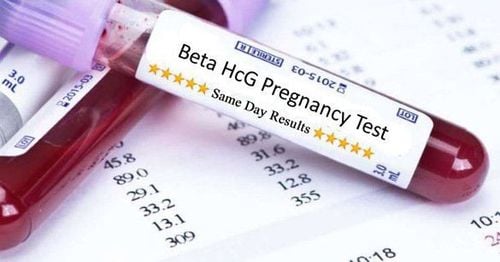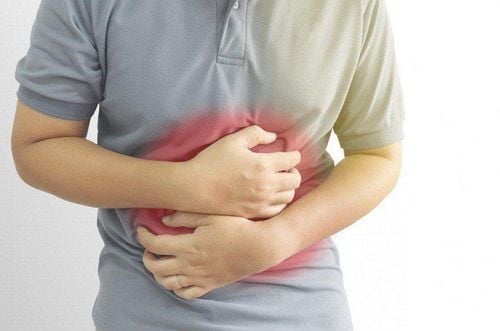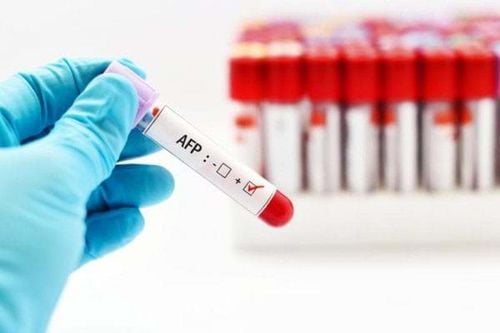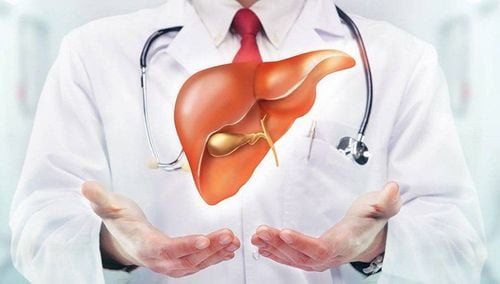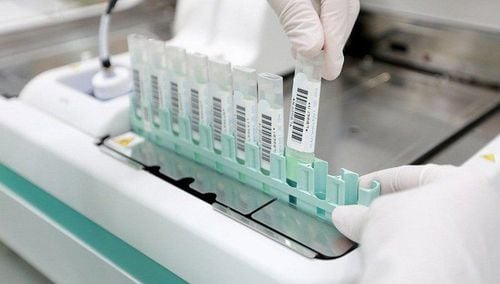This is an automatically translated article.
Erythrocyte Acetylcholinesterase (Erythrocyte Acetylcholinesterase) enzyme test is one of the valuable testing techniques in case of poisoning, helping the doctor to accurately diagnose the condition and give the appropriate treatment plan.
1. What is cholinesterase?
Cholinesterase is a very important enzyme in the blood, it catalyzes the hydrolysis of Acetylcholine to release choline and acetic acid. This process of reaction helps neurons from resting state to active state.There are 2 types of cholinesterase enzymes in the blood:
Acetylcholinesterase (AChE) or erythrocyte cholinesterase: Has the effect of conducting impulses from nerve neurons to muscle fibers; Pseudocholinesterase (PChE): Also known as serum cholinesterase, it is mostly produced in the liver. The normal value of cholinesterase in the blood is: 5300 - 12900 U/L (5.3 - 12.9 kU/L).
2. When to test for cholinesterase in the blood?
Indication of blood cholinesterase test in the following cases:
Diagnosis and follow-up treatment of patients with poisoning with herbicides, chemicals, pesticides... with accompanying symptoms. such as: Dizziness, headache, nausea, sweating, ... Or worse: Vomiting, diarrhea, impaired vision, muscle twitching, muscle weakness, difficulty in walking respiratory,... People with liver diseases or preparing for a liver transplant; It is necessary to test the bilan before surgery for people with serum cholinesterase deficiency (if muscle relaxants are used during surgery).
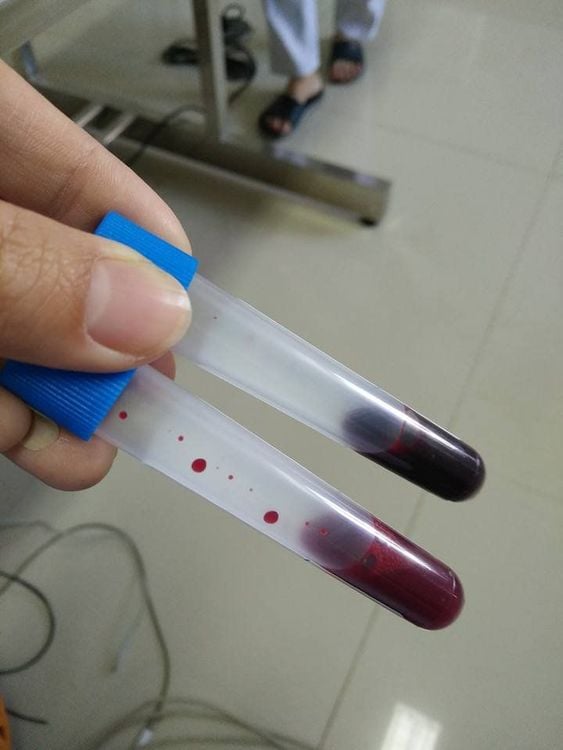
Xét nghiệm men cholinesterase có giá trị trong trường hợp người bệnh bị ngộ độc
3. Notes when performing a blood Cholinesterase test
Because cholinesterase is present in the blood, doctors will use serum to conduct tests; Before conducting the blood cholinesterase test, the patient does not need to fast; Other drugs should be discontinued 24 hours before the blood cholinesterase test to avoid affecting the results. For patients requiring surgery, sampling should be performed 2 or more days before surgery. Factors that can change the blood cholinesterase test results include:
Broken red blood cells in the test specimen; Patients using a number of products that can reduce cholinesterase activity include: folic acid, atropin, caffeine, chloroquine hydrochloride, codeine carbamate, cyclophosphamide... Anticoagulants with citrate or some antiseptic drugs also may affect cholinesterase levels. In summary, the blood cholinesterase test plays a very important role in monitoring, diagnosing and treating patients with poisoning, and at the same time, this test is also valuable in detecting those who are sick. carriers of the gene that controls the enzyme cholinesterase or those who have undergone surgery with muscle relaxants.
To get accurate results, patients need to conduct a blood cholinesterase test at a medical facility with modern equipment, experienced and highly qualified doctors. Currently, the Department of Hematology (Blood Complete Blood Test) - Vinmec International General Hospital is one of the leading prestigious addresses in the country, trusted by a large number of patients for medical examination and treatment. . Thanks to the use of modern machines and equipment to check and analyze blood, it has provided accurate information on red blood cells, white blood cells, platelets, hemoglobin,... Overall assessment of the health status of the person being tested, early detection of the disease and suggestions for timely treatment. In particular, with a space designed according to 5-star hotel standards, Vinmec guarantees to bring patients the most comfort, friendliness and peace of mind when visiting and receiving treatment at the hospital.
Please dial HOTLINE for more information or register for an appointment HERE. Download MyVinmec app to make appointments faster and to manage your bookings easily.




